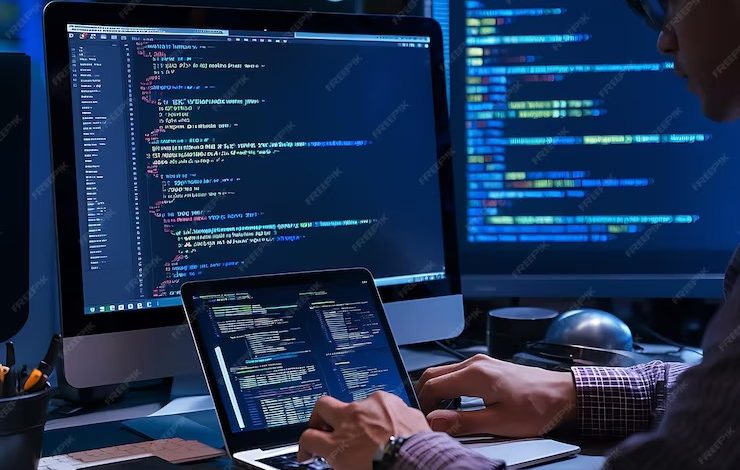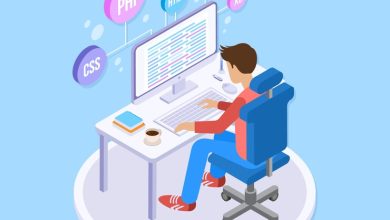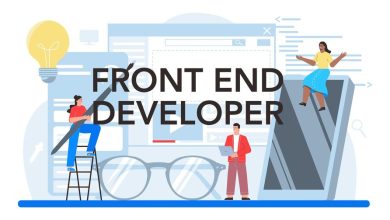
Essential Strategies for Success: Programming things
Programming things, Programmers and developers form the backbone of the digital age, crafting the intricate lines of code that power our applications, websites, and software systems. Beyond the lines of code, the world of programmers is a complex and dynamic one, filled with unique quirks, challenges, and a shared culture. In this exploration, we will delve into 100 aspects that shed light on the fascinating world of programmers and developers, check the below for 100 tech cool gadget on besttechproducts and what is programming ? a hand book for beginner freecodecamp and how to become mobile programmer on Infoteckt

The 50 Intricacies of Programming things
1-10: Programming things
- Programming Languages: Programmers often specialize in multiple programming languages, with preferences ranging from Python and JavaScript to Java and C++.
- Coffee, Code, Repeat: A classic stereotype, many programmers have a deep affection for coffee, considering it a fuel that powers their coding marathons.
- Code Comments: Meaningful code comments are the unsung heroes of programming. Developers appreciate well-commented code for better collaboration and future understanding.
- Open Source Enthusiasts: Many developers actively contribute to open-source projects, fostering a sense of community and collaboration within the programming world.
- Debugging Ninjas: Debugging is a significant part of a programmer’s life. The ability to decipher and fix complex issues is a skill that every developer hones over time.
- The Stack Overflow Sanctuary: Programmers often turn to Stack Overflow, the holy grail of programming forums, for solutions to coding challenges and troubleshooting.
- Keyboard Shortcuts Mastery: Efficiency is key, and programmers are known for their mastery of keyboard shortcuts, saving precious time during coding sessions.
- Version Control Savvy: Version control systems like Git are second nature to developers, enabling them to track changes, collaborate seamlessly, and roll back when necessary.
- Documentation Appreciation: Good documentation is a programmer’s best friend, providing insights into libraries, frameworks, and APIs, making development smoother.
- Continuous Learning: The tech landscape evolves rapidly, and programmers embrace a culture of continuous learning to stay relevant and adopt new technologies.
11-20: The Coding Environment :Programming things
- Dark Mode Devotees: Many developers prefer coding in dark mode, citing reduced eye strain and a more visually appealing experience.
- Multiple Monitors Rule: More screens mean more code visibility. Developers often work with multiple monitors to enhance productivity.
- Customized IDEs: Programmers love to customize their Integrated Development Environments (IDEs), creating a personalized coding environment.
- Rubber Duck Debugging: The rubber duck on the desk is not just a decoration; it’s a debugging companion. Explaining code aloud often helps in finding solutions.
- Terminal Mastery: Command-line interfaces and terminal commands are integral to a programmer’s toolkit, showcasing a level of mastery over the development environment.
- Keyboard Preferences: Mechanical keyboards with customizable key switches are a programmer’s choice for a tactile and personalized typing experience.
- Meeting Room Aversion: Developers often prefer uninterrupted coding time, leading to a mild aversion to frequent meetings.
- Task Automation: From script automation to CI/CD pipelines, programmers automate repetitive tasks to focus on more challenging aspects of development.
- Online Collaboration Tools: Tools like Slack, Microsoft Teams, and Discord have become essential for communication and collaboration among development teams.
- No Disturbance Mode: Many developers opt for a “Do Not Disturb” mode or headphones to signal focused coding time.
21-30: The Coding Lifestyle :Programming things
- Hackathon Enthusiasts: Participating in hackathons is a common way for programmers to showcase their skills, learn, and collaborate on exciting projects.
- Remote Work Advocates: The tech industry has embraced remote work, and programmers appreciate the flexibility it offers to work from anywhere.
- Coding Playlists: Curated playlists, ambient sounds, or even complete silence — programmers have distinct preferences when it comes to their coding soundtrack.
- Meme-Loving Culture: Programming communities thrive on memes and humor related to coding challenges, bugs, and the idiosyncrasies of the tech world.
- Task Management Tools: Developers use task management tools like Jira, Trello, or Asana to keep projects organized and track progress.
- Stacking up Stickers: Personalizing laptops with stickers is a common trend among developers, showcasing their tech stack, favorite languages, and witty quotes.
- Open Plan Offices Skepticism: Many developers prefer private spaces or remote work over open-plan offices, finding it conducive to deep work.
- Code Reviews Ritual: Code reviews are standard practice, providing opportunities for learning, collaboration, and maintaining code quality.
- Pair Programming Advocates: Some developers swear by pair programming, finding it an effective way to share knowledge and solve complex problems collaboratively.
- Sprint Cycles and Agile Methodologies: Agile methodologies, including Scrum and Kanban, are commonly adopted for project management, emphasizing iterative development and adaptability.
31-40: The Developer’s Mindset :Programming things
- Curiosity-driven Development: A curious mindset is integral to a developer’s success, driving them to explore new technologies and find creative solutions.
- Problem-solving Addiction: Developers thrive on solving problems, whether it’s debugging a complex issue or architecting an elegant solution to a business problem.
- Love for Efficiency: Developers appreciate efficient code, optimized algorithms, and elegant solutions that not only work but work well.
- Code Refactoring Passion: Code refactoring is not just a task; it’s a passion. Developers enjoy improving code readability, performance, and maintainability.
- Imposter Syndrome: Imposter syndrome, a feeling of inadequacy despite achievements, is common among developers, reflecting the challenging and ever-evolving nature of the field.
- Easter Egg Creation: Sneaking in hidden features or Easter eggs in code is a playful tradition for some developers, adding a touch of humor or surprise.
- Tolerance for Ambiguity: Working with incomplete information and navigating uncertainty is a skill programmers develop, given the dynamic nature of projects.
- Humility in the Face of Bugs: No code is perfect. Developers embrace the inevitability of bugs, approaching them with humility and a determination to fix and learn.
- Code Aesthetics Matter: Developers take pride in writing clean and aesthetically pleasing code, considering it a form of craftsmanship.
- User-Centric Mindset: Successful developers keep the end user in mind, understanding that the ultimate goal is to create a positive and seamless user experience.
41-50: Community and Collaboration :Programming things
- Tech Communities Engagement: Developers actively participate in tech communities, attending meetups, conferences, and engaging in online forums to share knowledge and insights.
- Open Source Contributions: Contributing to open source projects is a way for developers to give back to the community and enhance their skills.
- Documentation Advocacy: Writing clear and comprehensive documentation is not just a task; it’s a responsibility for developers contributing to open source or collaborative projects.
- Mentorship Appreciation: Mentorship plays a crucial role in the development journey. Many developers appreciate the guidance of experienced mentors.
- Tech Talks and Webinars: Developers regularly attend tech talks and webinars to stay updated on industry trends, learn new technologies, and network with peers.
- Hackathons as Team-Building: Beyond individual participation, developers enjoy teaming up for hackathons, fostering collaboration and innovation within their organizations.
- Code Reviews Etiquette: Providing constructive feedback and maintaining a positive code review etiquette is an essential aspect of collaborative development.
- Diversity and Inclusion Advocacy: Developers advocate for diversity and inclusion within the tech industry, recognizing the importance of varied perspectives and experiences.
- Tech Twitter Presence: Many developers actively engage on Twitter, sharing insights, participating in discussions, and staying connected with the broader tech community.
- Meetup Networking: Local tech meetups provide opportunities for developers to network, share experiences, and build connections within their communities.
Discover more from Infotech
Subscribe to get the latest posts sent to your email.






Hi there, I found your site by means of Google even as looking for
a related subject, your web site got here up, it appears to be like
great. I’ve bookmarked it in my google bookmarks.
Hello there, just was aware of your weblog thru Google, and found that it is truly informative.
I am gonna watch out for brussels. I’ll be grateful for those who proceed this in future.
Numerous folks will probably be benefited from your writing.
Cheers!